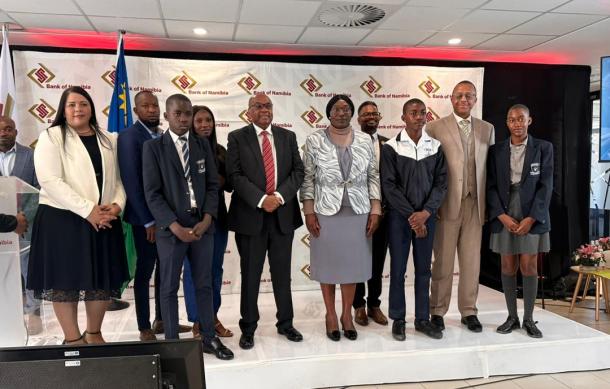
The Bank of Namibia has launched a robotic coding project to level Namibia's education system with the ever-advancing developments in the world of technology.
Fueled by Namibia's aspirations to become an industrialised nation, the STEAM project focuses on science, technology, engineering, the arts, and mathematics.
STEAM subjects are listed in all of Namibia's national development frameworks, including the Harambee Prosperity Plan.
Additionally, the project aims to prepare industries where youth are active to be more innovative and on par with constantly evolving technology.
The central bank governor states that Namibia's youth must be prepared in STEAM fields, and in this way, the current education system must be strengthened.
The Governor of the Bank of Namibia, Johannes !Gawaxab said, "These emerging fields are not just buzz words; they are pathways to future economic prosperity. However, the reality is that our current education system is not adequately equipped to provide our students, especially those in rural areas and public schools, with the skills needed in these critical areas and these emerging fields of study."
As such, he says, at the end of the day, these students are left at a disadvantage compared to their counterparts in urban private schools.
In its recognition of the importance of STEAM education through its corporate social responsibility strategy, !Gawaxab says the central bank commits to bridge this divide through the launch of STEAM by introducing 240 learners countrywide in public schools and rural areas to STEAM-related activities.
BoN collaborated with the organisation 'Minds in Action' for its robotics and coding project to be rolled out to four schools.
These are Nuuyoma Senior Secondary School in Omusati, Wennie Du Plessis Senior Secondary School in Omaheke, P K De Villiers Secondary School in ||Kharas and Hans Daniel Namuhuya Secondary School in Oshikoto.
The Education, Arts, and Culture Deputy Minister, Faustina Caley, states that these projects stand as beacons of educational reform, poised to bridge the yawning chasm between theory and practice.
"By providing students with opportunities to apply their knowledge and skills in tangible, real-world scenarios, they catalyse creativity, nurture collaborative spirit, and equip our youth with the essential skills needed for 21st-century success."





